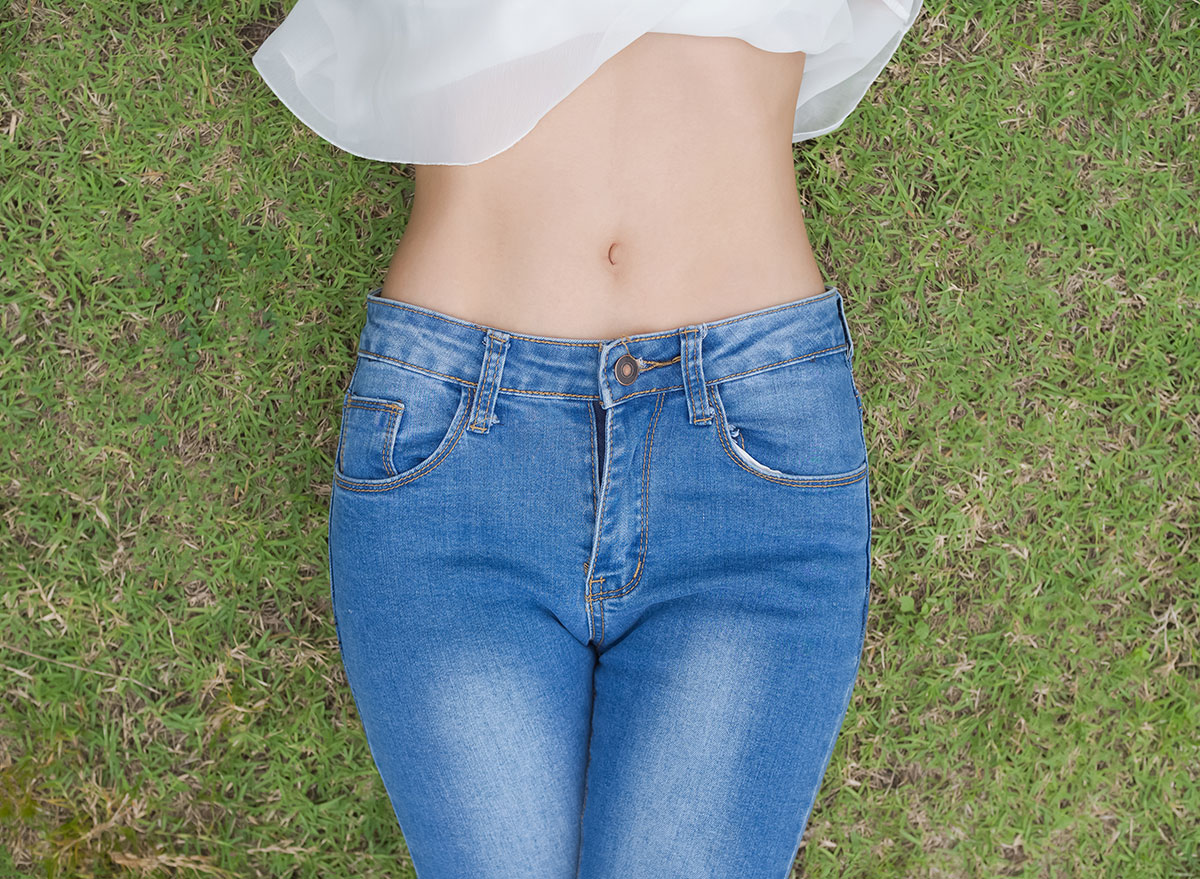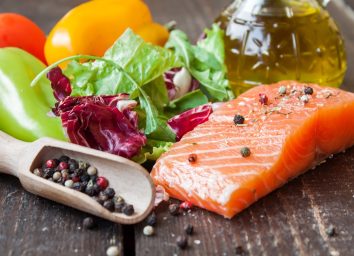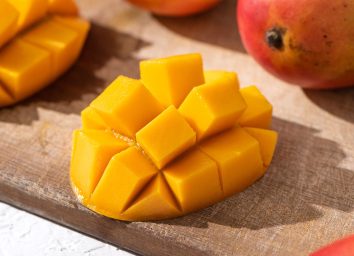The Worst Eating Habits for Your Gut, Say Dietitians
Having gut problems is one of the most frustrating experiences. Whether you feel bloated, gassy, or just downright uncomfortable, your gut can really affect your mood and overall well-being.
Oftentimes eating habits can be the cause of gastrointestinal (GI) discomfort, which is why we called on several registered dietitians to pinpoint four eating habits that irritate the gut. We also asked them to provide a few tips on how you can help improve digestion as well.
You're eating sugar-free food products.
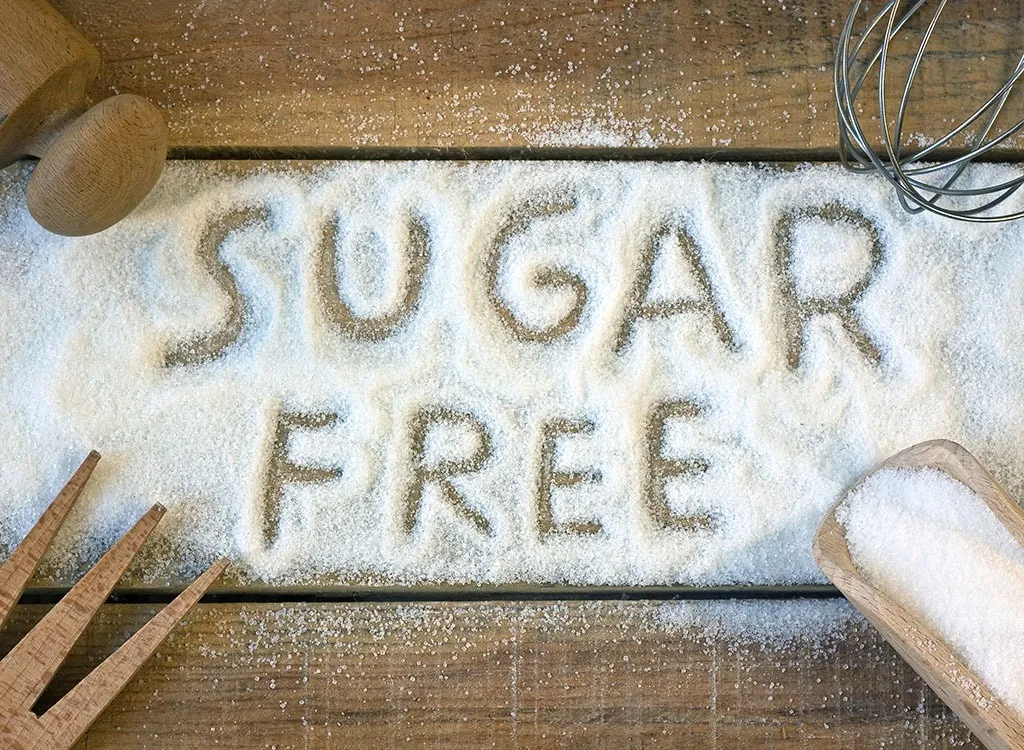
Sammi Haber Brondo, MS, RD, and author of The Essential Vegetable Cookbook: Simple and Satisfying Ways to Eat More Veggie says that sugar alcohols can cause discomfort in your gut, especially if you have irritable bowel syndrome (IBS).
"Often found in things like protein bars, snack foods, and gum, [sugar alcohols] can cause a lot of stomach upset if eaten in excess. I usually recommend clients avoid them unless they know their stomachs are okay with eating them."
Sugar alcohols are added to low-carb and keto-friendly snacks that don't contain any sugar, says Christopher Mohr, PhD, RD, and co-owner of Mohr Results. They offer that sweet taste, without any of the calories. When you examine the nutrition label of a product, be on the lookout for sugar alcohols like xylitol or erythritol.
"Anything ending in -ol can mess with your gut and leave you with some unwelcome side effects," he says.
Don't miss I'm an RD, and This Is The One Thing You Crave When You Give Up Alcohol.
You eat foods that are high in FODMAPs.
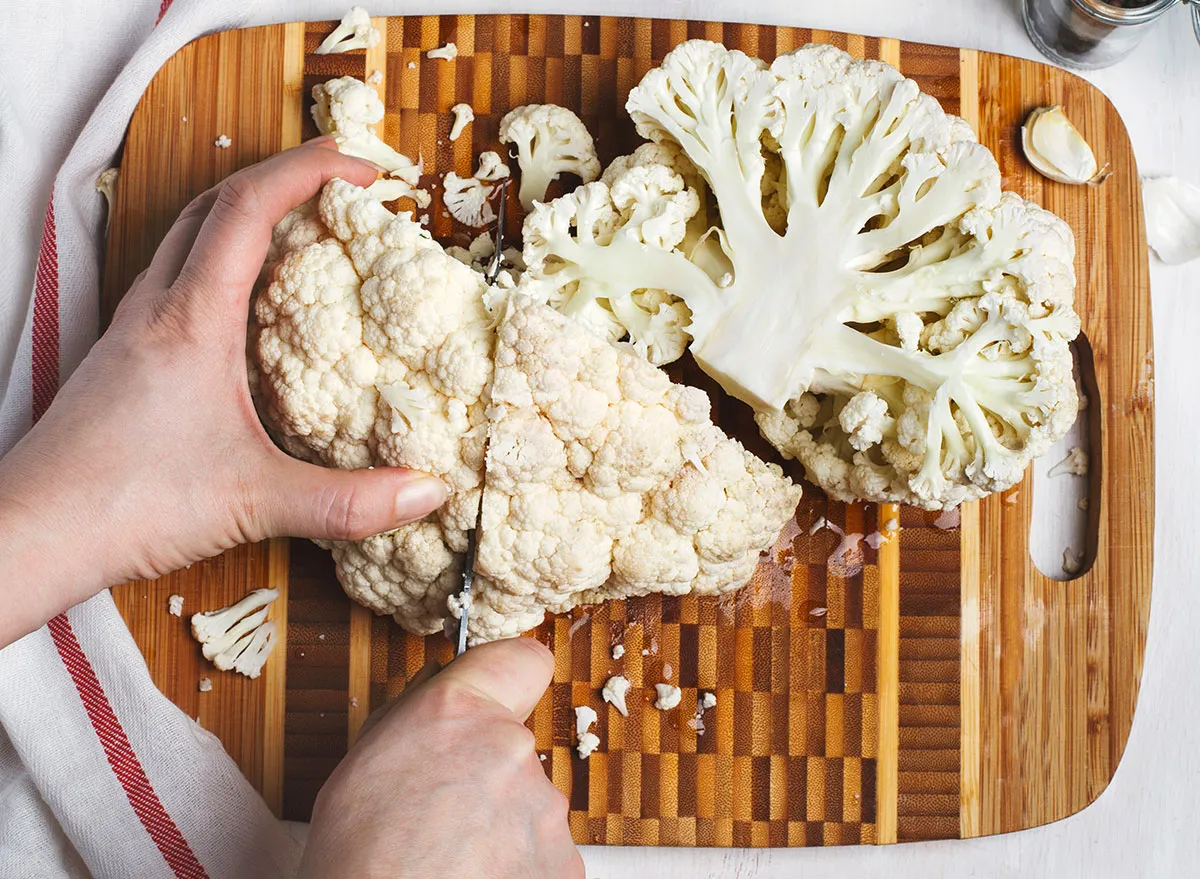
Tamar Samuels MS, RDN, NBC-HWC, and co-founder of Culina Health says that people IBS should avoid foods that are high in FODMAPs, which is an acronym for fermentable oligosaccharides (galactans and galacto-oligosaccharides), disaccharides (lactose), monosaccharides (excess fructose), and polyols (sugar alcohols).
"These are specific types of carbohydrates that are poorly absorbed by humans but are metabolized (or fermented) by our gut microbiome," she explains. "FODMAPs are found in a variety of foods, including milk, garlic, wheat, and sugar-free gum. If you think you have IBS and want to try the low FODMAP diet, I recommend working with a dietitian to guide you through the process and help you identify triggers."
Some foods that trigger symptoms of IBS, which include bloating, gas, diarrhea, and even constipation, are raw cruciferous vegetables like cauliflower. Sugary, processed foods can also cause discomfort in those who have the condition.
You eat these foods too close to bedtime.
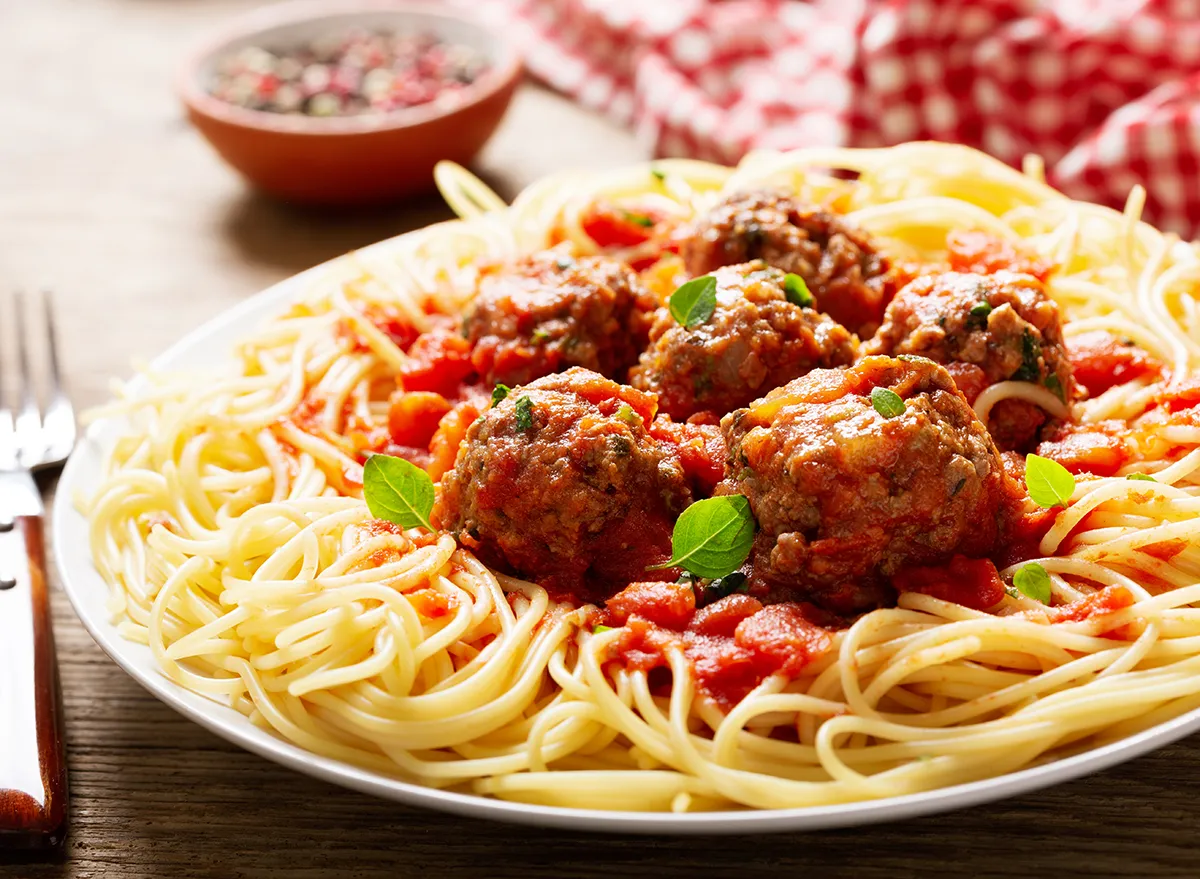
Sydney Spiewak, MS, RDN, CD-N says that spicy foods and foods that have high acidity could cause GI discomfort, especially if you consume them directly before bed.
"For example, tomatoes are a very acidic food and if eaten in a large amount too close to bedtime, it may cause symptoms of acid reflux, indigestion, or heartburn," she says. "When we eat too much or too little throughout the day in addition to right before bedtime, it causes a problem in our digestion and sleep cycles."
Now, if you haven't eaten much all day and you need to get some calories in, that shouldn't stop you from eating at night, says Brondo.
"There's no reason to avoid eating late at night if that's when you're hungry," she says. "But, try to give yourself a little time between when you eat and lay down or go to bed to give the food enough time to digest. Nothing drastic here—just 20-30 minutes is plenty."
Samuels adds that both skipping meals and overeating can impair digestion.
You eat meals that are really high in fat.
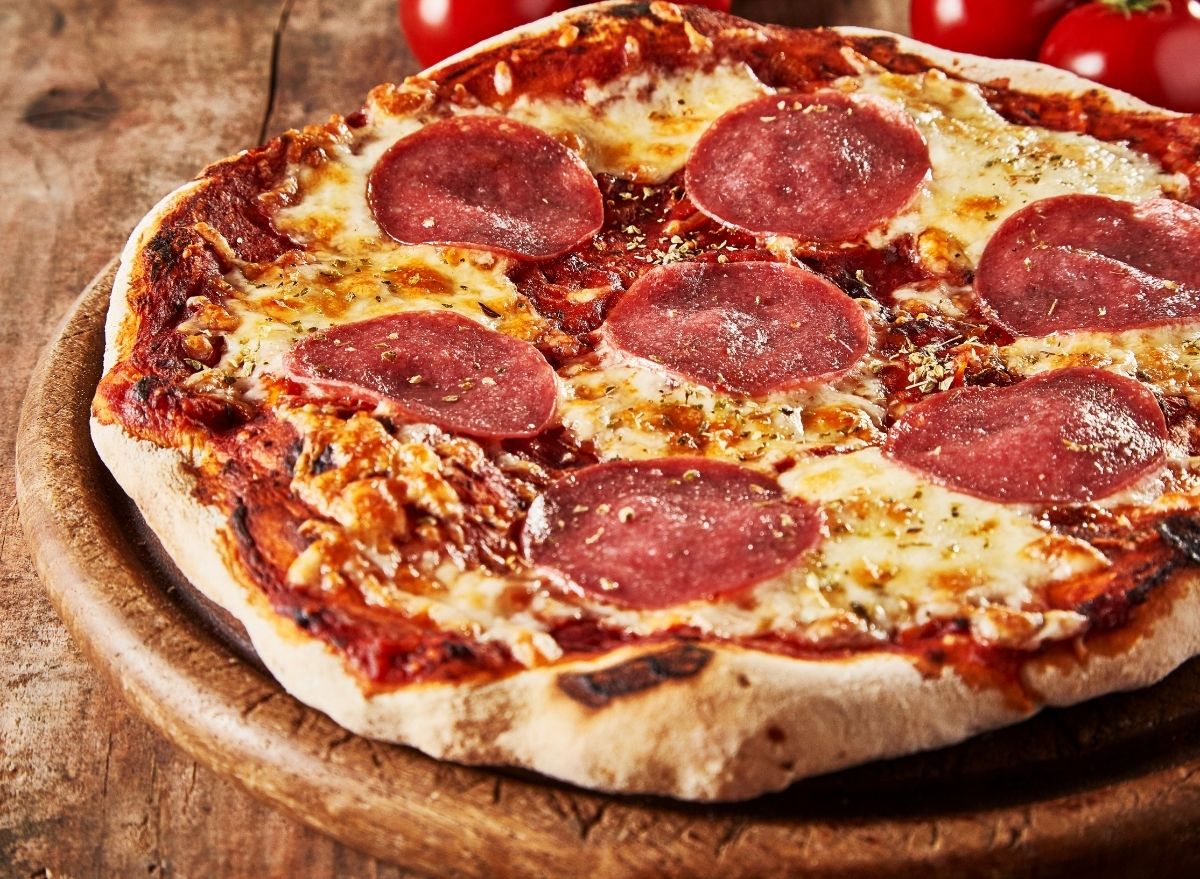
"High-fat meals can slow digestion because fat takes longer to break down, so if you've gnawed on wings, cheese fries, and a meat lover's pizza, you may not feel so good after," says Mohr. "This isn't to say fat is bad, but very high-fat meals can certainly leave you feeling a bit lethargic."
Don't miss One Side Effect of Eating a High-Fat Diet, Says New Study!
Now, what are some eating habits that can help your gut?
Eat more fiber-rich foods.
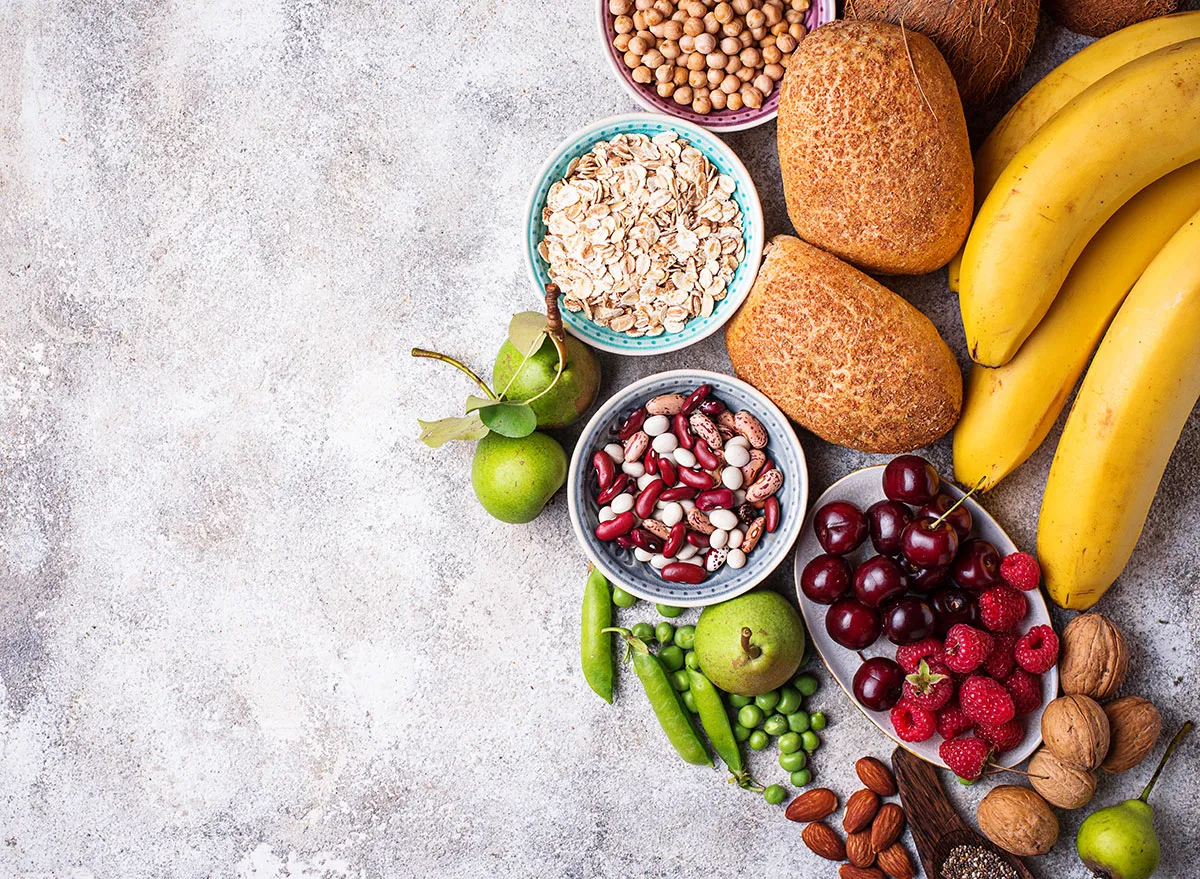
"Fiber is a serious unsung hero in the nutrition world," says Mohr. "The average person gets just about 1/3 to 1/2 of their daily needs, yet eating just a few more grams daily can not only help with digestion but also with lowering the risk of heart disease and diabetes."
Samuels adds that women should aim to eat at least 25 grams of fiber per day, whereas men should eat about 38 grams daily. However, both Mohr and Samuels advise that you gradually increase your fiber intake.
"Eating excess fiber can make your digestive symptoms worse, often worsening constipation and diarrhea," says Samuels. "The best way to increase your fiber intake is to do it gradually from whole food sources."
Mohr recommends adding a large handful of spinach to your berry-filled smoothie. "Between those two delish types of produce, you'll get 5-10 grams of fiber," he says. He also suggests adding a serving of prunes to your diet, such as a snack, as it provides 3 grams of fiber.
Drink more water.

Samuels recommends drinking about 10 glasses of fluids each day.
"Water keeps the food and fiber moving through your intestines. If you are dehydrated to begin with, your large intestine will soak up fluids from your waste and this will make your stool harder to pass," she says. "My advice? Invest in a 1-liter water bottle, and fill it three times a day. Make drinking water more fun by adding some frozen fruit as flavored 'ice cubes,' lemon and/or fresh herbs."
Spiewak adds that staying hydrated helps to flush toxins out of your body.
"I'm sure you've heard before that our body is made up mostly of water," she says. "This is true, which is why it's important to stay hydrated. If we become dehydrated, our immunity can start to become compromised over time."
Eat more probiotic-rich foods.
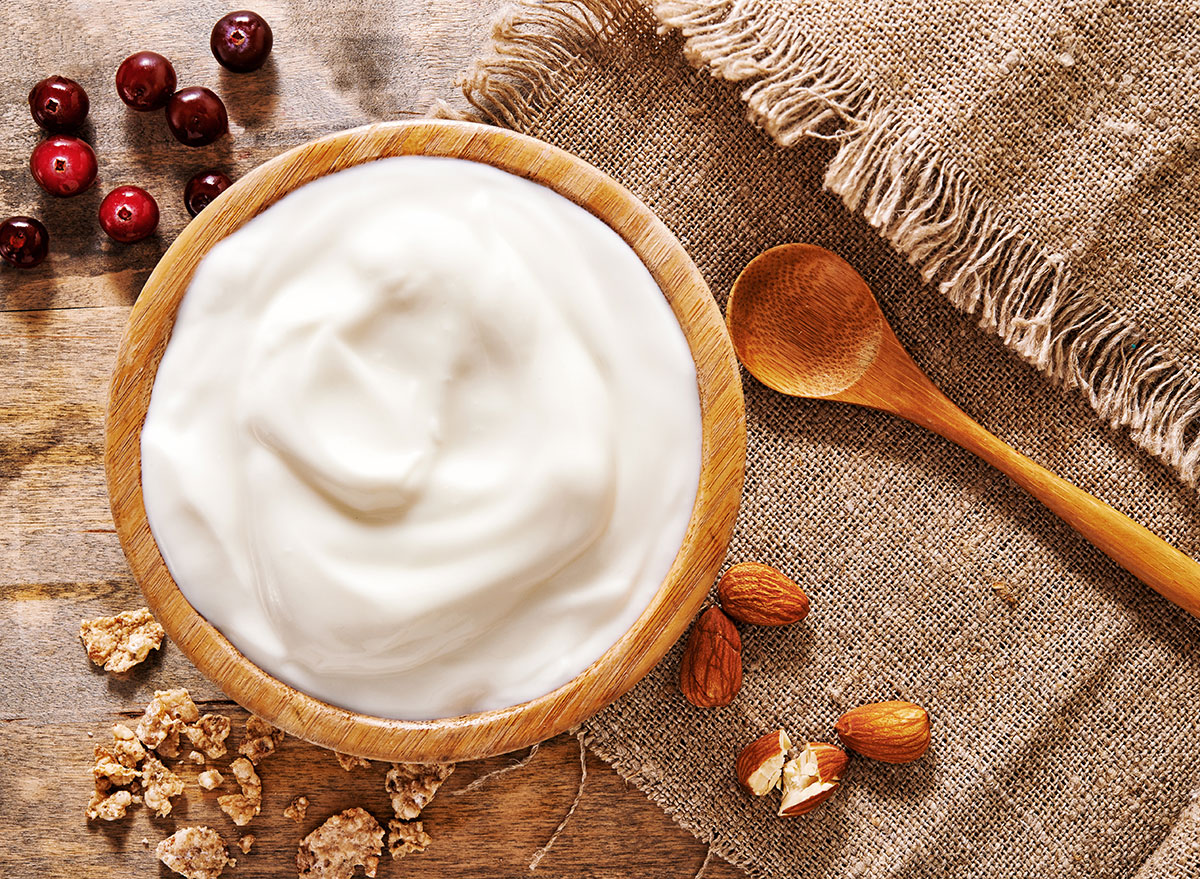
"Probiotic-rich foods are a potent source of beneficial bacteria that help support digestion and immunity," says Samuels. "Start adding foods like sauerkraut, kimchi, [dairy] yogurt, coconut yogurt, tempeh, and miso to your diet. A little goes a long way, and these foods often add a kick of flavor."
Now, don't miss Eating Habits to Avoid If You're Over 50, Say Dietitians! Then, don't forget to sign up for our newsletter.
